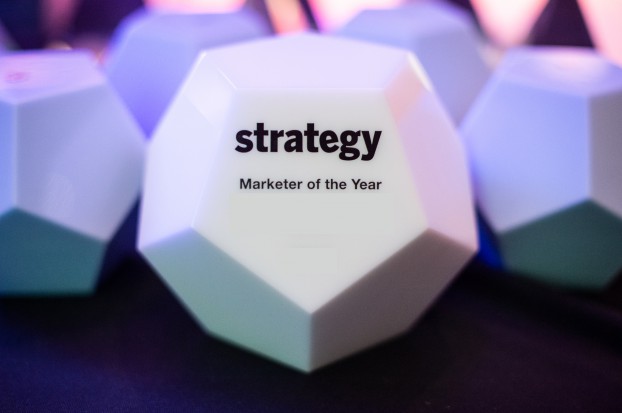In a development that calls attention to marketers’ ever-growing infatuation with loyalty marketing, Toronto-based Hudson’s Bay Company – parent of Zellers and The Bay – signed a contract last month to manage a loyalty catalogue program for Citibank Taiwan.
hbc is handling the contract through a division it set up last August to create and run customized loyalty programs for companies not interested in doing it on their own.
Since launching the division, hbc has also signed deals with three Canadian firms, Royal Bank, cibc and Chapters.
Martin Riley, general manager of the division, says hbc is keeping its fingers crossed that, if it proves itself with the Taiwan branch, other Citibank subsidiaries not yet affiliated with a competing loyalty program (Air Miles has some wrapped up), will fall into place.
Riley says the chances of this happening are particularly good in Asia, where the practice of loyalty marketing is still relatively underdeveloped.
In other words, the company is hoping that this first international contract is just the beginning. ‘Our objective is to become a separate operating company within the Hudson’s Bay stream of companies,’ says Riley, adding that the division will expand its repertoire to include Internet marketing and call-centre expertise – both core competencies that the company formerly kept to itself.
‘Our objective is to become more of a global player,’ he says. ‘We want to go out to the marketplace and offer that marketing capability that we have in-house and haven’t really done that much with yet.’
For now, hbc has developed a customized 200-item catalogue for the bank – much of it featuring designer-style product because that’s what the Taiwanese crave, according to Riley, who compares Southeast Asia’s ‘the bigger, the better’ love of labels to the same North American obsession in the 1980s.
Besides customizing the catalogue, hbc will handle sourcing and fulfilment of the product (it has set up a warehouse in Taiwan), along with points management for the bank.
‘As a retailer, our expertise is really on the assortment sourcing of the products both domestically and globally,’ says Riley, adding that this fulfilment capability – at the right price – is what makes hbc an attractive partner to international clients.
‘That’s a core part of what our business is all about and it’s just another way of selling merchandise,’ says Riley. ‘We have that expertise and the wherewithal to leverage the expertise to source merchandise. Other loyalty management groups don’t have that.’
What other loyalty management groups do have, however, is global experience.
Take Toronto’s Carlson Marketing Group, part of u.s.-based Carlson Companies. Like hbc, it offers customized consumer and employee loyalty services. Unlike hbc, however, it already has offices in 20 countries.
Meanwhile, there’s an Air Miles program across North America and the u.k., and in the Netherlands and Spain, according to John Wright, vice-president and general manager of Air Miles business programs for The Loyalty Group in Toronto. There’s also a program identical to Air Miles operating in Australia.
However, the majority of loyalty programs, particularly in Asia, are in-house programs, according to Wright, who is also the chair of the Canadian Direct Marketing Association’s relationship marketing council. The whole mission of the council is to increase and elevate the skills used in the creation and management of relationship marketing programs.
Wright says the move toward outsourcing in loyalty programs is a reflection of a larger business trend. ‘I think a lot of times companies have gone through economic cycles where they were really into vertical integration and bringing everything in-house,’ he says.
‘Over time, they’ve backed away from that. That’s driven a lot of stuff outside the organization.’
Before all this expertise came about, however, there were growing pains, says Wright. Coupons, once considered the standard to promote loyalty – and still popular in the packaged goods industry to encourage trial, aren’t much use to any company seriously interested in relationship marketing, says Wright. Because couponing rarely allows a company to differentiate between an existing and a non-existing customer, it is the antithesis of everything loyalty marketing – and its data-heavy offspring, relationship marketing – stands for, he says.
‘Mass couponing promotes trial but the question is – trial amongst who?’ says Wright, adding that companies have no way of knowing whether a new customer was trying the product for the first time or whether a current customer was merely using the coupons to save money.
Even when the airlines launched their travel reward programs in the early 1980s, it still wasn’t clear that loyalty programs could work in almost any industry, says Wright. Three things had to come together before relationship marketing could ever be considered a widespread possibility, he says.
First, the idea that capturing consumer information and putting it on a database could make economic sense. This was something proven time and again by book and music clubs which, according to Wright, were the pioneers in recognizing the value of a customer. Second, a model had to be available – such as a frequent flyer’s program – that showed people responded to loyalty programs. And, finally, there had to be a solid base of specialists in direct marketing – people who understood how to do analysis for customer-specific programs, he says. ‘Once you’ve got those three things, you can start to develop program design across virtually any industry.’
Despite the fact that so many companies practise loyalty marketing of one kind or another, Wright says that Canada is nowhere near its peak. ‘I would say we’re probably just getting off the ground,’ he says. He points to coffee chains where a standard punch card is the only relationship marketing tool used. That takes it right back to coupons, he says. ‘They’re just trying to encourage repeat usage, which is fine, but they don’t really know who’s buying the product.’
Companies like this may be left behind as other companies conquer the next level – data mining. Solid data mining is what will take Canadian companies into the realm of relationship marketing, he says. ‘What will happen over time is the companies that are good at putting in loyalty programs and then building customer relationship programs on top of it will use the information from their customers to do things like offering services or products that those people actually want and will buy.’ This will make the companies more efficient in their product-development cycle, he says.
That’s exactly the direction hbc’s new business division is moving in, says Riley. ‘What we’re in the process of doing is really starting to exploit the information that’s in the database,’ he says. By building data warehouse technology while cultivating vendor relationships, the company can offer products that would be attractive to specific customers at certain times of the year, he says. For example, Zellers might be able to offer a back-to-school double Club Z points deal for Levi’s jeans, he says. That expertise can then be offered to international clients as well, he says.
Meanwhile, in an effort to manage all fronts, the new arm is moving into Air Miles territory with the opening of its own travel company, Nexus Travel.
So far, this means that Club Z holders can redeem points for travel (something they could do only on a very limited basis before.) While it’s limited to Zellers’ Club Z at this time, there’s no reason that expertise can’t be exported to global clients as well, says Riley.























